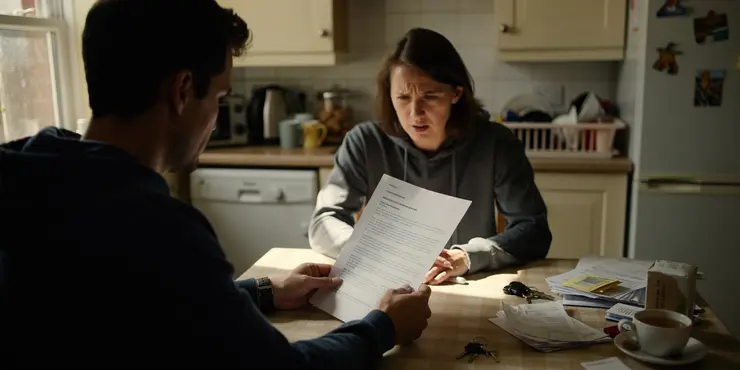
Find Help
More Items From Ergsy search
-
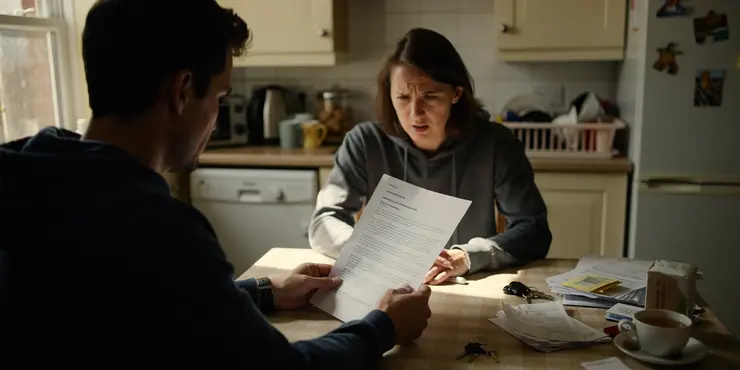
What can I do if my landlord wants to evict me?
Relevance: 100%
-

Can I negotiate with my landlord to avoid eviction?
Relevance: 97%
-

Can my landlord evict me without providing a reason?
Relevance: 97%
-

Can a landlord lock me out or remove my belongings to evict me?
Relevance: 95%
-

Can a landlord evict me for complaining about property conditions?
Relevance: 93%
-
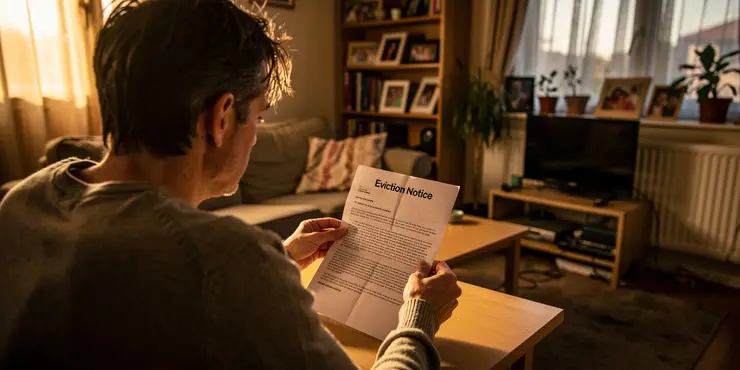
What should I do if I receive an eviction notice from my landlord?
Relevance: 92%
-

Are there changes to the eviction process?
Relevance: 78%
-
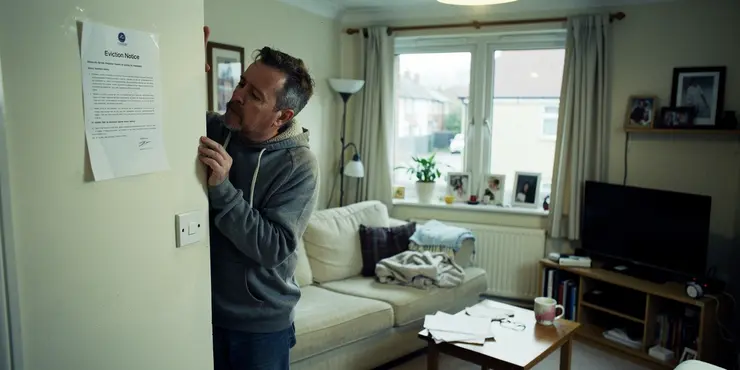
What are my rights during the eviction process?
Relevance: 74%
-

What are the consequences of having an eviction on my record?
Relevance: 74%
-
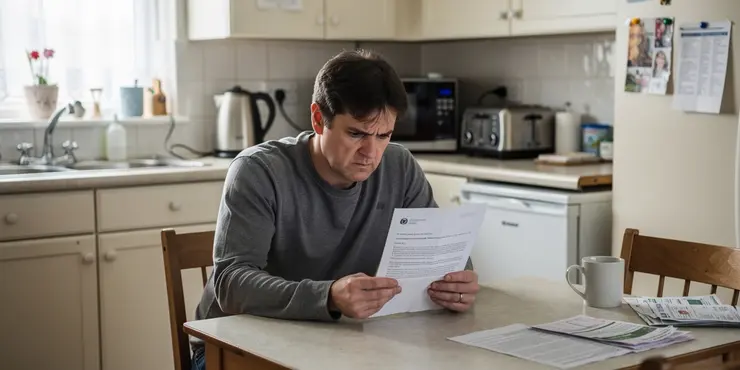
What can I do if I believe my eviction is retaliatory?
Relevance: 73%
-
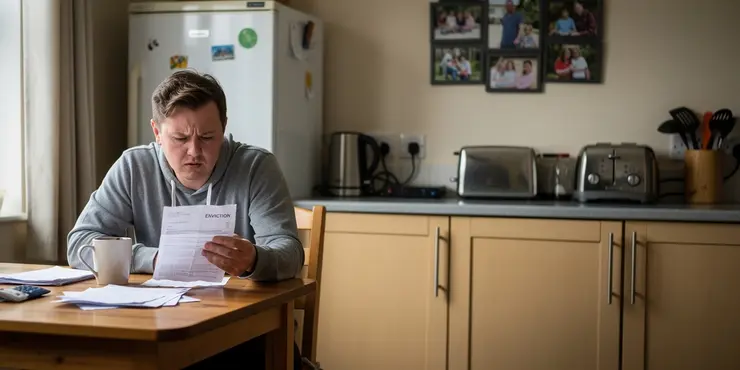
How can I contest or challenge the eviction?
Relevance: 73%
-

Has the notice period for eviction changed?
Relevance: 73%
-

Can eviction affect my credit score?
Relevance: 72%
-
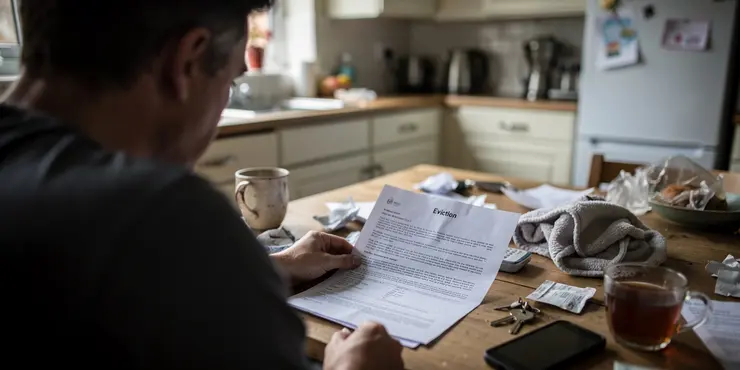
Does filing for bankruptcy stop an eviction?
Relevance: 72%
-

Can I stop an eviction if I catch up on rent payments?
Relevance: 71%
-

How can I prepare for an eviction court hearing?
Relevance: 71%
-
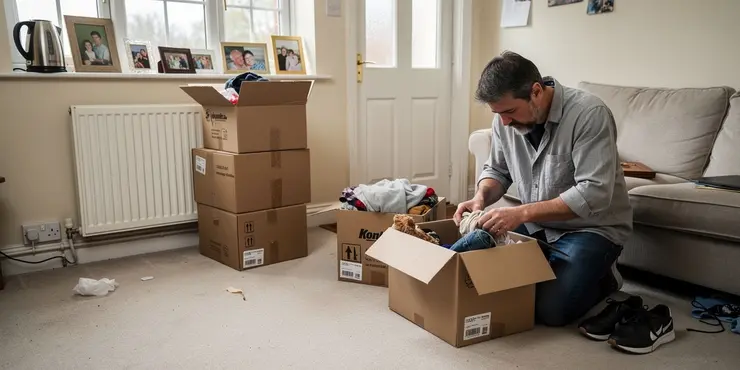
What happens if I stay beyond the eviction deadline?
Relevance: 70%
-

How long do I have to move out after receiving an eviction notice?
Relevance: 67%
-

Is mediation an option to resolve eviction disputes?
Relevance: 67%
-
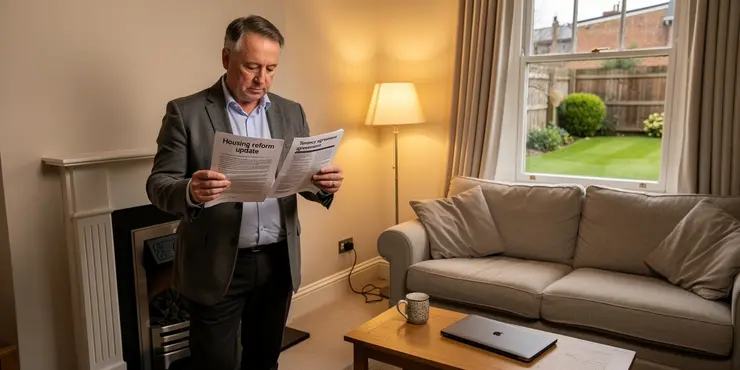
How do these reforms affect landlords?
Relevance: 67%
-
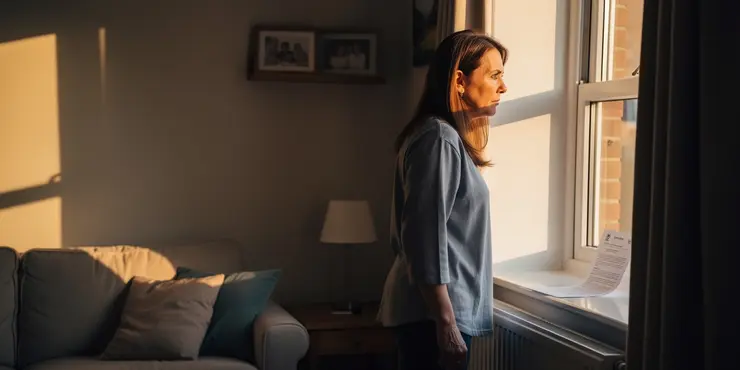
Can I appeal a court's eviction decision?
Relevance: 64%
-

Are there any government programs that can help me avoid eviction?
Relevance: 62%
-

What should I do if I can't afford a lawyer for the eviction process?
Relevance: 62%
-
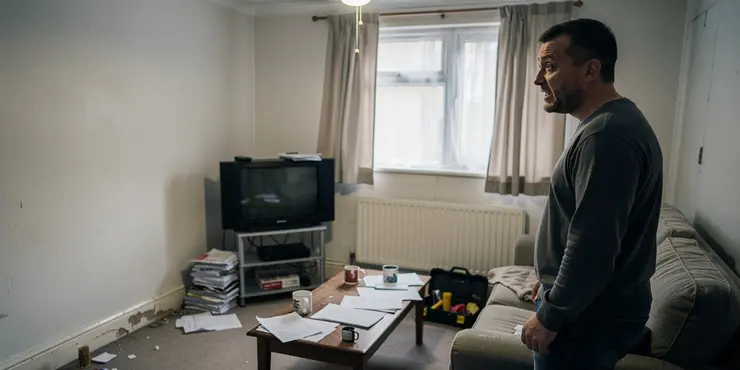
Landlord Licensing Laws Under Review as Tenants Call for Stronger Protections
Relevance: 58%
-
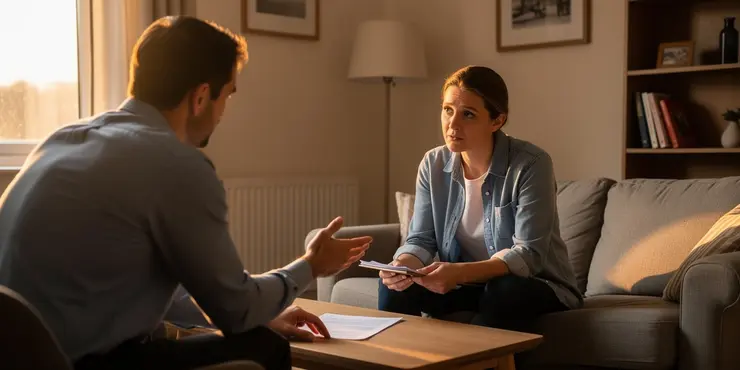
How are disputes between landlords and tenants handled?
Relevance: 57%
-

How do I find alternative housing quickly if evicted?
Relevance: 55%
-

How will the cuts impact landlords?
Relevance: 53%
-

How are landlord-tenant issues resolved in property litigation?
Relevance: 48%
-

Are landlords required to provide energy performance certificates?
Relevance: 47%
-

What are the new Tenancy Law Reforms in the UK in 2025?
Relevance: 45%
-

What can tenants do if they are affected by the cuts?
Relevance: 43%
-

5 Broker Exclusive Buy to Let Mortgage Lenders you need to know about as a Landlord
Relevance: 42%
-

What new protections are included for tenants?
Relevance: 41%
-

Watchdog Raises Concerns Over Commercial Landlord Regulations
Relevance: 40%
-

How does the reform impact renting costs?
Relevance: 38%
-

Are there reforms concerning subletting?
Relevance: 33%
-

What changes affect pet policies in rented homes?
Relevance: 29%
-

Can property litigation involve commercial real estate?
Relevance: 27%
-

Why might someone need a property litigator?
Relevance: 26%
-

How are rent increases regulated under the new law?
Relevance: 24%
Understand the Reason for Eviction
If your landlord wants to evict you, the first step is to understand the reason behind the eviction. In the UK, landlords can only evict tenants under certain conditions, such as rent arrears, breach of tenancy agreement, or the landlord wanting to move back into the property. It’s important to receive a written notice explaining the reason for eviction, giving you the opportunity to address any issues or prepare a response.
Review Your Tenancy Agreement
Examine your tenancy agreement carefully to understand your rights and obligations. The agreement should stipulate the conditions under which eviction can occur. Ensure that the landlord's reasons for eviction align with the terms specified in the agreement. If the eviction seems unjustified or outside the terms of the contract, you may have grounds to dispute it.
Check the Legality of the Notice
Landlords must follow legal procedures to evict tenants. The type of notice you receive depends on your tenancy, such as an Assured Shorthold Tenancy (AST) or a lodging arrangement. For ASTs, landlords typically use either a Section 21 or Section 8 notice. A Section 21 notice does not need a reason but must comply with legal requirements regarding notice period and proper service. A Section 8 notice is issued when there’s a breach of the tenancy agreement and must specify the grounds for eviction. Ensure that your notice adheres to these requirements.
Seek Legal and Professional Advice
If you face eviction, consider seeking advice from legal professionals or housing advisers. Organizations like Shelter, Citizens Advice, or a local law centre can provide guidance based on your circumstances. They can help you verify the legality of the eviction process and offer support in disputing an unlawful eviction.
Respond to the Notice Appropriately
If the eviction notice is valid, you should respond promptly. Try negotiating with your landlord to resolve any issues, such as arranging a repayment plan for rent arrears. Document all communications to maintain a clear record of your attempts to remedy the situation. If negotiations fail, and you believe the eviction is unjust, you might need to prepare a defense for court.
Prepare for Court Proceedings
If your case proceeds to court, gather all relevant documents, such as your tenancy agreement, rent payment records, and correspondences with your landlord. The court will determine whether the eviction is lawful, and having comprehensive evidence will support your case. Even if the court rules in favor of eviction, understanding your rights can help negotiate a more favorable timeframe for vacating the property.
Consider Your Housing Options
In case of impending eviction, start considering alternative housing options. Look for properties within your budget or seek temporary accommodation through local councils or housing charities. This contingency plan will provide some security if you need to find a new place to live promptly.
Why You Might Get Evicted
If your landlord wants you to leave your home, it is important to know why. In the UK, landlords can only ask you to leave in certain situations, like if you owe rent, have broken the rules in your tenancy agreement, or if the landlord wants to live in the property. You should get a letter telling you why, so you can fix any problems or get ready to reply.
Check Your Tenancy Agreement
Read your tenancy agreement carefully. It tells you what you and your landlord can and cannot do. Make sure the reason your landlord wants to evict you matches the rules in your agreement. If it does not, you might be able to stop the eviction.
Make Sure the Eviction Notice is Legal
Your landlord must follow the law to make you leave. The type of notice you get depends on your tenancy type, like an Assured Shorthold Tenancy (AST). For an AST, the landlord might give you a Section 21 or Section 8 notice. A Section 21 notice doesn’t need a reason but must follow certain rules. A Section 8 notice is for breaking the agreement and must say why. Check your notice carefully.
Get Help from Experts
If you are facing eviction, get advice from experts or housing advisers. Places like Shelter, Citizens Advice, or a local law centre can help you. They can tell you if the eviction process is legal and how to challenge it if it's not.
Reply to the Notice Quickly
If the notice is fair, answer it soon. Talk to your landlord to solve any issues, like setting up a plan to repay owed rent. Keep records of your talks so you have proof of trying to fix things. If talks don't work and you think the eviction is unfair, you may need to get ready to explain your side in court.
Get Ready for Court
If you have to go to court, collect all important papers, like your tenancy agreement, proof of rent payments, and messages with your landlord. The court will decide if the eviction is legal, and these documents will help your case. Even if the court says you must leave, knowing your rights can help you discuss how long you can stay before moving.
Think About Where to Live Next
If you might have to move, start looking for new places to live. Find homes you can afford or ask local councils or housing charities for temporary help. Having a plan can make it easier if you have to move quickly.
Frequently Asked Questions
What should I do if I receive an eviction notice from my landlord?
First, carefully read the eviction notice to understand the reasons for the eviction and the deadline to vacate. Then, consider contacting a lawyer or legal aid organization for assistance and advice on how to respond.
Can my landlord evict me without providing a reason?
Landlords must have a legitimate reason to evict tenants, such as lease violations or other specific grounds. However, in some areas with month-to-month leases, landlords might not need to provide a reason but must still follow legal eviction procedures.
How long do I have to move out after receiving an eviction notice?
The timeframe varies depending on local laws and the reason for eviction. It can range from a few days to several weeks. The eviction notice should specify the timeframe.
Can I stop an eviction if I catch up on rent payments?
In many cases, paying overdue rent can halt an eviction for non-payment. However, it depends on local laws and the specific terms of the eviction notice.
What are my rights during the eviction process?
Tenants have rights, including the right to receive proper notice, the right to contest the eviction in court, and the right to a fair legal process. It's important to understand local tenant laws.
Can a landlord lock me out or remove my belongings to evict me?
No, landlords cannot forcefully evict tenants by locking them out or removing their belongings without a court order. This is considered an illegal eviction in most jurisdictions.
What can I do if I believe my eviction is retaliatory?
Retaliatory evictions, such as those in response to a tenant asserting their legal rights, are illegal in many areas. If you suspect this, seek legal advice to challenge the eviction.
How can I contest or challenge the eviction?
You can contest an eviction by presenting your case in court. It's advised to gather evidence, such as communication with the landlord, and seek legal representation or advice.
What should I do if I can't afford a lawyer for the eviction process?
Consider reaching out to local legal aid organizations, which may provide free or low-cost legal services to eligible individuals.
Is mediation an option to resolve eviction disputes?
Mediation can be a good option to reach an agreement with the landlord and avoid eviction. Check if local tenant-landlord dispute resolution programs are available.
Can I appeal a court's eviction decision?
Yes, you can appeal a court's eviction decision, but there is usually a limited timeframe to do so. Consult a lawyer to understand your options and the process.
What happens if I stay beyond the eviction deadline?
Staying past the deadline without an agreement can lead to a forced eviction through law enforcement and may negatively impact your rental history.
Can eviction affect my credit score?
Yes, eviction can impact your credit score, especially if the landlord obtains a judgment against you for unpaid rent or damages.
How do I find alternative housing quickly if evicted?
Explore options such as temporary housing, staying with friends or family, applying for emergency housing assistance, or contacting local shelters.
Can a landlord evict me for complaining about property conditions?
No, evictions in retaliation for complaints about property conditions are often illegal. You have the right to live in a safe and habitable environment.
Are there any government programs that can help me avoid eviction?
Yes, various government programs and emergency rental assistance programs exist to help tenants avoid eviction. Check with local housing authorities for available resources.
Does filing for bankruptcy stop an eviction?
Filing for bankruptcy might temporarily halt eviction proceedings through an automatic stay, but this is not a permanent solution. Consult a bankruptcy attorney for advice.
What are the consequences of having an eviction on my record?
An eviction on your record can make it more challenging to rent in the future, as landlords typically conduct background checks.
Can I negotiate with my landlord to avoid eviction?
Yes, negotiating with your landlord is often possible and may lead to solutions such as a repayment plan, lease modification, or voluntary move-out agreement.
How can I prepare for an eviction court hearing?
Gather all relevant documents, such as your lease, rent payment records, and communication with the landlord. Be prepared to present your case clearly and seek legal advice if possible.
What to Do If Your Landlord Says You Must Move Out
Start by reading the eviction notice slowly and carefully. This will help you understand why you have to leave and when you need to be out. After that, think about talking to a lawyer or a group that helps people with legal problems. They can give you advice and help you know what to do next.
Can my landlord make me leave without telling me why?
Landlords must have a good reason to make tenants leave, like if they break the lease rules. But in some places, if the tenant rents month-to-month, landlords might not need a reason. However, they must follow the law to make someone leave.
Suggestions:
- Ask someone you trust to help explain letters from your landlord.
- Visit local advice centers if you have questions about your rental agreement.
When do I need to leave after getting a letter asking me to move out?
The time it takes for an eviction can be different. It depends on where you live and why you are being evicted. It could take a few days or a few weeks. The eviction notice will tell you how long you have.
Can I stop being kicked out if I pay the rent I owe?
If you pay the rent you owe, it might stop you from being kicked out of your home. But, it depends on the rules where you live and what your eviction notice says.
Your Rights If You Might Lose Your Home
If you might lose your home, you have some rights. Here is what you can do:
- Read all papers you get about losing your home. They tell you what is happening.
- You can ask a lawyer for help. A lawyer knows about the law.
- Go to court if you need to. A judge can listen to your side.
- You might get extra time before you have to leave.
You can ask a friend or family member to help you understand the letters and papers.
People who rent a home have rights. This means they must be told in advance if they have to leave. They can also go to court to disagree and get fair treatment. It's a good idea to learn about the rules where you live.
Can my landlord change the locks or take my things to make me leave?
No, landlords cannot make people leave their homes by locking them out or taking their things without asking a judge first. This is against the law in most places.
What can I do if I think my eviction is unfair?
If your landlord tries to make you leave because you stand up for your rights, it might be against the law in many places. If you think this is happening, talk to a lawyer or someone who knows about legal stuff to help you fight it.
How can I fight being told to leave my home?
If someone says you have to leave your home, you can try to stop it. Here are some easy ways to get help:
- Ask a friend for help.
- Talk to a lawyer or someone who knows the rules.
- Tell your side of the story to a judge.
- Look for help groups in your area.
- Read the papers you got carefully.
Don’t be afraid to ask lots of questions. It’s important you know what to do.
If you want to stop being kicked out of your home, you can go to court and share your side of the story. It's a good idea to collect proof, like messages you sent to or received from your landlord. Getting a lawyer or asking for legal help can also be really useful.
What can I do if I don’t have money for a lawyer in an eviction?
If you need help because you are being asked to leave your home and you can't pay for a lawyer, try these ideas:
- Ask friends or family for advice.
- Look for help at a local advice center (sometimes called a community center).
- You can call a free helpline for advice. They can tell you what to do.
- Check online for helpful websites that explain what to do.
Remember, you are not alone, and there are people who can help you.
You can ask for help from local groups that give free or cheap legal help. They help people who need it.
Can mediation help solve problems when someone is being asked to leave their home?
Mediation can help you talk to your landlord and make a plan. It can stop you from losing your home. Look for local programs that help people solve problems with their landlords.
Can I ask the court to change their decision to make me leave my home?
Yes, you can ask to change the court's decision to make you leave your home. But you have to do this quickly. Talk to a lawyer to find out what to do and how to do it.
What if I don't leave by the move-out date?
If you stay longer than you're supposed to, you might get into trouble. Here are some things that could happen:
- You could be asked to pay more money.
- You might have to go to court.
- Someone could change the locks so you can't get back in.
To stay safe, try to leave on time. You can ask someone for help if you don't understand what to do. Talking to a trusted adult, like a parent or a friend, can be helpful. You can also use tools like a calendar to keep track of important dates.
If you stay in your place longer than you agreed, you might be told to leave by the police. This can also make it harder to rent a place in the future.
Will being evicted change my credit score?
Yes, getting kicked out of your home can hurt your credit score. This happens if the landlord takes you to court because you owe rent or money for damages.
What can I do to find a new place to live fast if I have to leave my home?
If you need to find a new home quickly, here are some simple steps you can try:
- Ask family or friends if you can stay with them for a while.
- Call or visit local shelters to see if they have space.
- Look online for places that rent rooms or homes.
- Talk to a community center for advice and help.
It’s a good idea to have a phone or internet access to help with your search.
If you feel stressed or worried, talking to someone you trust can help too.
Think about these ideas:
- Stay somewhere else for a while.
- Ask friends or family to let you stay with them.
- Apply for help to find a place to stay in an emergency.
- Call local shelters to see if they can help.
Can my landlord make me leave because I talked about problems with the house?
If you have problems with your home, like things that need fixing, you can tell your landlord. But can your landlord make you leave just because you talked about these problems?
Important things to know:
- You have the right to live in a safe, healthy home.
- If something is broken, tell your landlord about it.
- Your landlord should not make you leave for speaking up.
Tips to help you:
- Write down what the problems are. This can help you remember.
- Take photos of the things that need fixing. Pictures can show what is wrong.
- Ask someone you trust to help you talk to your landlord.
No, a landlord cannot make you leave just because you complained about the property. This is usually against the law. You have the right to live in a safe and nice home.
Can the government help me stay in my home?
Yes, there are government programs that can help you if you are worried about losing your home.
Here are some ways they can help:
- They might give you money to help pay your rent.
- They can talk to your landlord for you.
- They can help you find someone to give you advice.
To learn more, you can:
- Call a local housing office and ask for help.
- Visit a website about housing help.
Yes, there are programs that can help people stay in their homes. These programs give money to help pay rent. You can ask your local housing office for help.
Will bankruptcy stop me from being kicked out of my home?
Filing for bankruptcy can stop eviction for a little while. This happens because of a rule called an "automatic stay." But this does not fix things forever. Talk to a lawyer who knows about bankruptcy to get help and advice.
What happens if I have an eviction on my record?
If you have been evicted, it may be harder to find a new home to rent. Landlords usually check your history before you move in.
Here are some tips to help:
- Ask someone you trust to help explain your eviction to landlords.
- Bring letters from places you’ve lived that say you were a good tenant.
- Use apps like Grammarly to help you write letters and forms clearly.
Can I talk to my landlord to stop being kicked out?
Yes, you can talk to your landlord to try and stay in your home. Here are some tips that might help:
- Tell your landlord about your problem and ask if you can pay late or pay less.
- Be polite and honest when you talk to them.
- Write down what you both agree on, like a payment plan.
- Ask for help from a friend or a family member if you find it hard to talk to your landlord.
- You can also talk to a local housing advisor or support service for more help.
Yes, you can talk to your landlord to find a solution. This could include paying rent later, changing your lease, or agreeing to move out at a different time.
How can I get ready for an eviction court meeting?
Getting ready for a court meeting can be tough, but there are things you can do to make it easier. Here are some simple steps to help you:
- Get your papers ready: Make sure all your important papers are together. This can be letters or notes about your home.
- Ask for help: Talk to someone you trust, like a friend or family member. You can also ask a legal aid group for advice.
- Practice what to say: It can help to say out loud what you want to tell the judge.
- Know the time and place: Make sure you know when and where the court meeting is.
- Stay calm: Try to be calm and listen carefully during the meeting.
If you have trouble reading or understanding, there are tools like audiobooks or text-to-speech apps that can help. You can also ask someone to explain things to you.
Get all the important papers you need. This includes your lease, records of rent payments, and any messages you've had with your landlord. Be ready to explain your situation clearly. It might help to talk to a lawyer too.
Useful Links
This website offers general information and is not a substitute for professional advice.
Always seek guidance from qualified professionals.
If you have any medical concerns or need urgent help, contact a healthcare professional or emergency services immediately.
Some of this content was generated with AI assistance. We’ve done our best to keep it accurate, helpful, and human-friendly.
- Ergsy carfully checks the information in the videos we provide here.
- Videos shown by Youtube after a video has completed, have NOT been reviewed by ERGSY.
- To view, click the arrow in centre of video.
- Most of the videos you find here will have subtitles and/or closed captions available.
- You may need to turn these on, and choose your preferred language.
- Go to the video you'd like to watch.
- If closed captions (CC) are available, settings will be visible on the bottom right of the video player.
- To turn on Captions, click settings .
- To turn off Captions, click settings again.
More Items From Ergsy search
-

What can I do if my landlord wants to evict me?
Relevance: 100%
-

Can I negotiate with my landlord to avoid eviction?
Relevance: 97%
-

Can my landlord evict me without providing a reason?
Relevance: 97%
-

Can a landlord lock me out or remove my belongings to evict me?
Relevance: 95%
-

Can a landlord evict me for complaining about property conditions?
Relevance: 93%
-

What should I do if I receive an eviction notice from my landlord?
Relevance: 92%
-

Are there changes to the eviction process?
Relevance: 78%
-

What are my rights during the eviction process?
Relevance: 74%
-

What are the consequences of having an eviction on my record?
Relevance: 74%
-

What can I do if I believe my eviction is retaliatory?
Relevance: 73%
-

How can I contest or challenge the eviction?
Relevance: 73%
-

Has the notice period for eviction changed?
Relevance: 73%
-

Can eviction affect my credit score?
Relevance: 72%
-

Does filing for bankruptcy stop an eviction?
Relevance: 72%
-

Can I stop an eviction if I catch up on rent payments?
Relevance: 71%
-

How can I prepare for an eviction court hearing?
Relevance: 71%
-

What happens if I stay beyond the eviction deadline?
Relevance: 70%
-

How long do I have to move out after receiving an eviction notice?
Relevance: 67%
-

Is mediation an option to resolve eviction disputes?
Relevance: 67%
-

How do these reforms affect landlords?
Relevance: 67%
-

Can I appeal a court's eviction decision?
Relevance: 64%
-

Are there any government programs that can help me avoid eviction?
Relevance: 62%
-

What should I do if I can't afford a lawyer for the eviction process?
Relevance: 62%
-

Landlord Licensing Laws Under Review as Tenants Call for Stronger Protections
Relevance: 58%
-

How are disputes between landlords and tenants handled?
Relevance: 57%
-

How do I find alternative housing quickly if evicted?
Relevance: 55%
-

How will the cuts impact landlords?
Relevance: 53%
-

How are landlord-tenant issues resolved in property litigation?
Relevance: 48%
-

Are landlords required to provide energy performance certificates?
Relevance: 47%
-

What are the new Tenancy Law Reforms in the UK in 2025?
Relevance: 45%
-

What can tenants do if they are affected by the cuts?
Relevance: 43%
-

5 Broker Exclusive Buy to Let Mortgage Lenders you need to know about as a Landlord
Relevance: 42%
-

What new protections are included for tenants?
Relevance: 41%
-

Watchdog Raises Concerns Over Commercial Landlord Regulations
Relevance: 40%
-

How does the reform impact renting costs?
Relevance: 38%
-

Are there reforms concerning subletting?
Relevance: 33%
-

What changes affect pet policies in rented homes?
Relevance: 29%
-

Can property litigation involve commercial real estate?
Relevance: 27%
-

Why might someone need a property litigator?
Relevance: 26%
-

How are rent increases regulated under the new law?
Relevance: 24%


